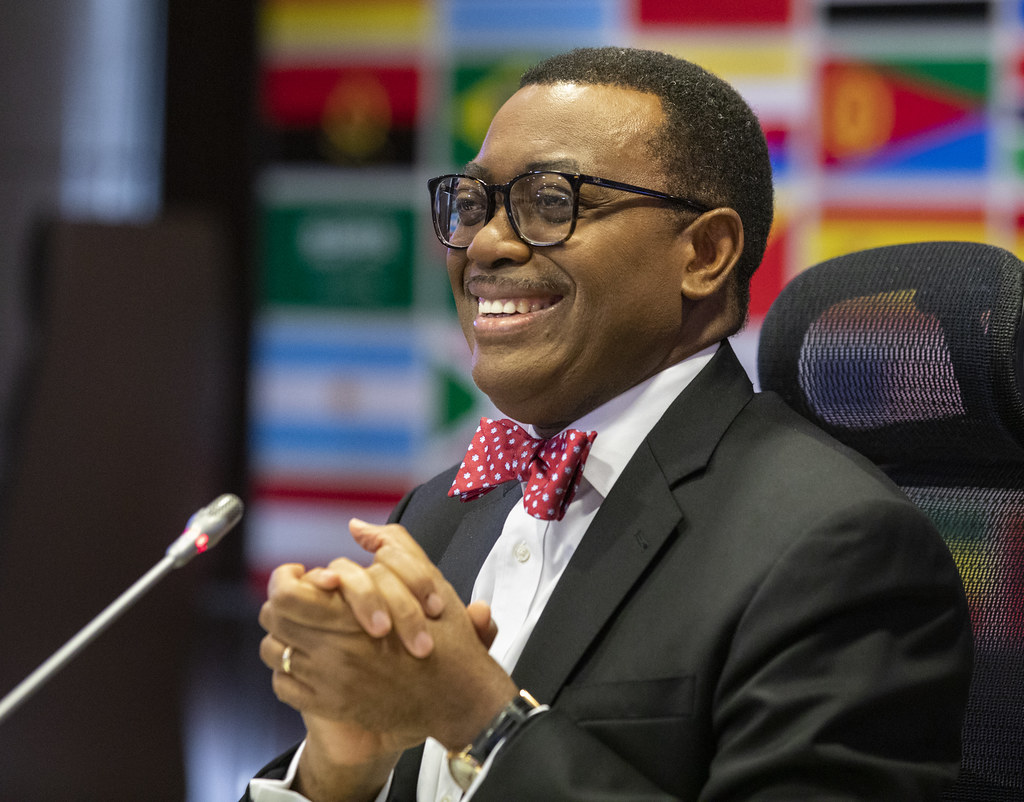AfDB NEWS & EVENTS
24-Mar-2020

Arrears on loans owed by Somalia to the African Development Bank Group have been cleared following the payment in full of $122.55 million by the governments of the United Kingdom and the European Union, marking the end of sanctions and the resumption of full re-engagement between the Bank Group and the East African nation.
The long road to resolution of Somalia’s debt arrears began in 2014 and included the completion of three Staff Monitored Programs of the International Monetary Fund, and significant advances on a fourth program.
The process saw the high level of political commitment and consistent engagement of Somali President Mohamed Abdullahi Mohamed 'Farmaajo', and Prime Minister Hassan Ali Khayre. This translated into the implementation of reforms that gave confidence to international financial institutions, including the African Development Bank and the International Monetary Fund.
Speaking on behalf of the Somali government, Minister of Finance, Abdirahman Beileh, said: “The settlement of the arrears of Somalia to the African Development Bank, is a new beginning for us in Somalia. We stuck with our reforms, we were persistent, and it has paid off”.
In response, Bank President Akinwumi Adesina noted that it was a historic moment for Somalia. “I am absolutely delighted that the African Development Bank provided the leadership needed to push for and successfully negotiate the arrears clearance for Somalia. It was a reflection of the power of partnerships and consensus building,” Adesina said.
Adesina further noted, “I commend the government of Somalia for their diligence in implementing reforms, and the UK government and the European Union for paying off Somalia’s arrears to the African Development Bank Group. Together, we got it done for the people of Somalia.”
The Bank Group will immediately provide a new policy-based operation to help boost economic growth and accelerated development of Somalia.
The Bank’s current portfolio in Somalia totals $135 million, covering operations in the agriculture, water and sanitation, transport, social and energy sectors, and capacity building for multiple sectors of the economy.



 Another factor compounding these dire statistics is extreme weather events associated with the impact of climate change. Africa bears the brunt of increased frequency and severity of drought, floods and cyclones – perhaps more than other regions of the world – due to the continent’s low capacity to adapt to and mitigate the impacts of climate change.
Another factor compounding these dire statistics is extreme weather events associated with the impact of climate change. Africa bears the brunt of increased frequency and severity of drought, floods and cyclones – perhaps more than other regions of the world – due to the continent’s low capacity to adapt to and mitigate the impacts of climate change. The Bank also supports the development of climate-resilient, multipurpose water programs for storage and sectoral use – like hydropower, irrigation and river regulation – as well as investments that mitigate water-related disaster risk such as drought, flooding, cyclones and storm surges. For example, the Bank and development partners financed $210 million for the Program for Integrated Development and Adaptation to Climate Change in the Niger Basin. Covering nine countries, the project promotes investment in climate-resilient, hydro-agricultural infrastructure, sustainable land and water management as well as strengthened climate risk management.
The Bank also supports the development of climate-resilient, multipurpose water programs for storage and sectoral use – like hydropower, irrigation and river regulation – as well as investments that mitigate water-related disaster risk such as drought, flooding, cyclones and storm surges. For example, the Bank and development partners financed $210 million for the Program for Integrated Development and Adaptation to Climate Change in the Niger Basin. Covering nine countries, the project promotes investment in climate-resilient, hydro-agricultural infrastructure, sustainable land and water management as well as strengthened climate risk management.













